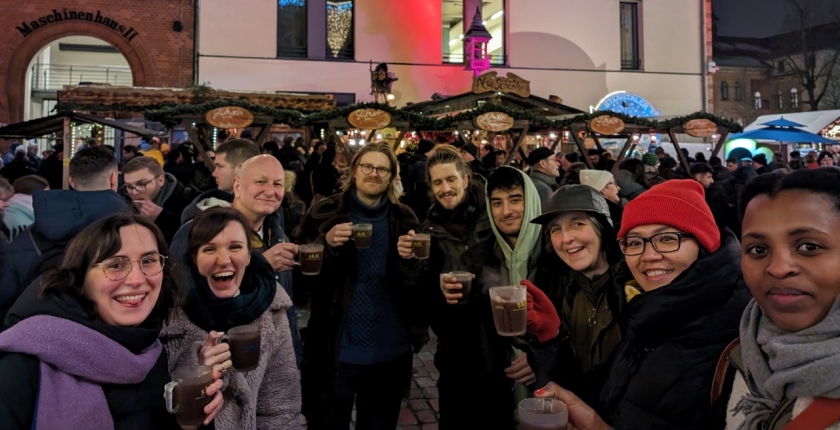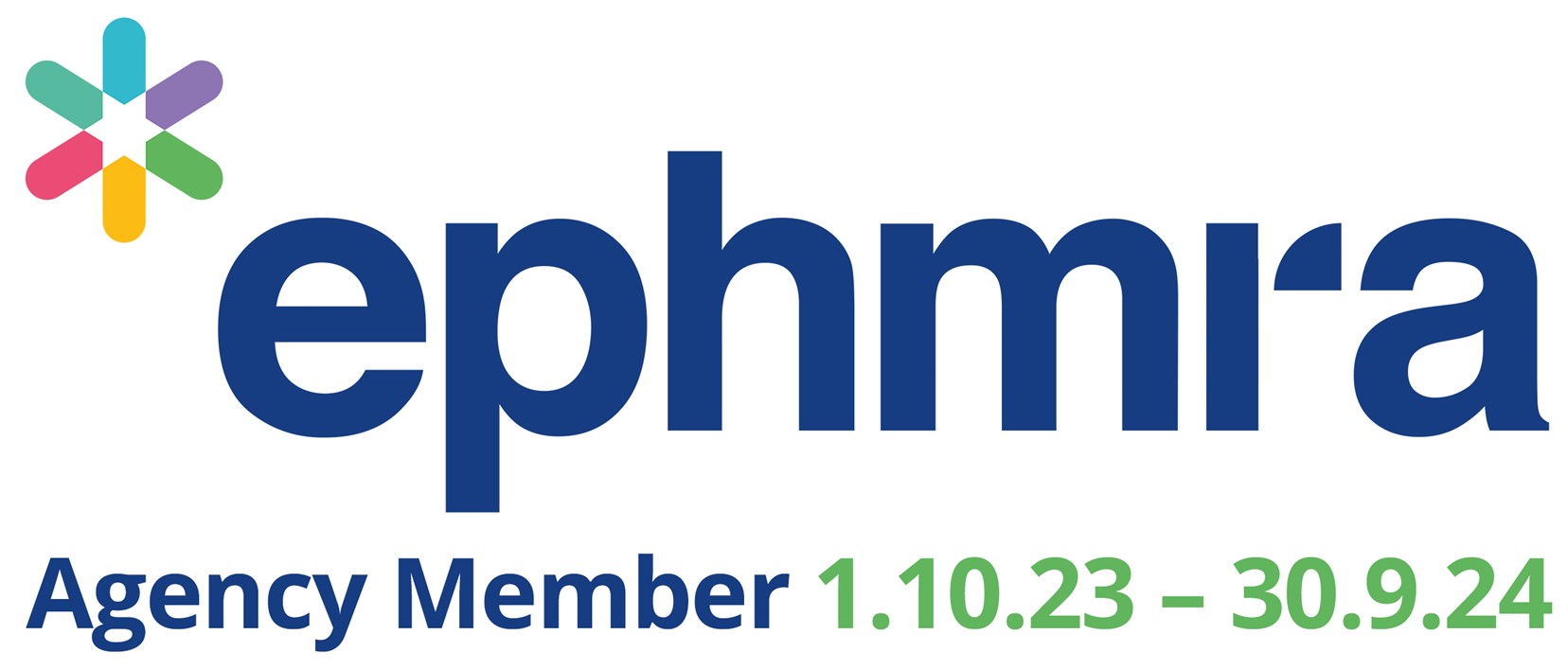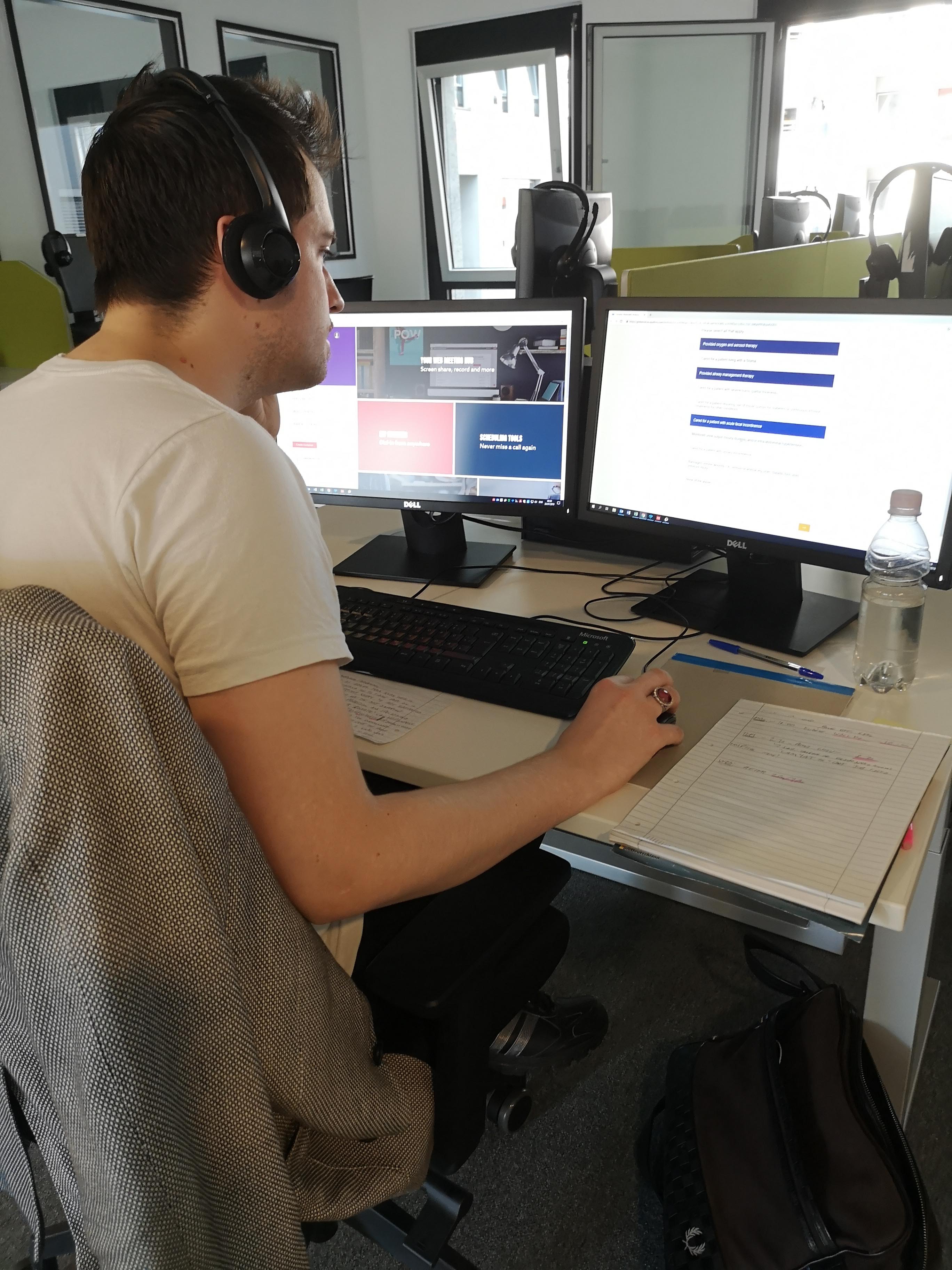
The HOK Research team wishes all our clients, panel members, friends, partners, colleagues, and survey participants a very happy holiday break and a healthy, peaceful, and successful new Year!
In the spirit of the season, we asked our Berlin team to provide some feedback about how Christmas is celebrated in their home country.
Christmas in India with Marella: The festivities begin around the middle of December with celebrations in schools and gatherings in the community. Most people celebrating will decorate their homes with lights on the outside with a star hanging prominently for all to see and inside their homes with a Christmas tree and a nativity diorama.
Families come together in the week before Christmas to make festive sweets like Kul Kuls (crunchy deep fried dough curls coated in powdered sugar) and Snowballs (dome shaped baked sugar cookies) while listening to Christmas carols and songs. These sweets are then shared with wider family and friends when visiting them during the holiday week.
Everyone goes to church either on the 24th for a late-night service or on the 25th morning, to celebrate the birth of Christ. Families will gather for a festive lunch on the 25th to celebrate together and open presents. In the evening people meet friends to celebrate with them. There is no Boxing Day and festivities end on New Year’s day.
Christmas in Poland with Dominika: In Poland, we love to celebrate Christmas with lots of food and family. We celebrate on the 24th December and have a long Christmas dinner. Usuals served on table include: Barszcz z uszkami (amazing beetroot soup with dumplings), tons of pierogis, seasoned herrings and Poles favourite Christmas fish – carp! It can be fried, it can be served in jello (yuck), depends on the region. For dessert we usually have apple pie or makowiec (poppyseed pie). Dessert is always made from a trusted recipe, that has been kept in the family for generations. The rule is, we can only open the presents once we have tried all the dishes that are on the table – usually there are 12 of them! The best memories are of course formed by singing carols together, playing some games and of course, from a refreshing fight about politics after the dessert!
Christmas in the USA with Marcus: In the US, the 25th was always the big celebration day, whereas in Germany, the 24th seems to be the bigger event. When I was a kid, we had a tradition where you could open ONE gift on Christmas Eve (the 24th), but the rest would be on Christmas morning. Christmas morning was always the big celebration with the immediate family. We’d have celebrations with the extended family at dinner time on the 24th and 25th, usually visiting my mom’s parents and that side of the family on Christmas eve, and my dad’s parents and that side of the family on Christmas day. One thing I miss from Christmas in the US is pumpkin pie with whipped cream; I actually don’t think I’ve seen American style pies here at all. The spices used are very similar to Lebkuchen or Spekulatius, and the texture is not unlike cheesecake.
Christmas in the UK with Adam: For me Christmas was a nice cosy family get together. First we'd open any stocking stuffers (with the ever present chocolate coins and an orange). For breakfast we'd have Bucks Fizz and a fry up. Then of course it's time for presents, we'd all sit around the tree and hand them out one by one with Christmas music playing in the background as the wrapping paper piled up. Then more Bucks Fizz as the TV came on with all the Christmas classic films and cheesy Christmas special episodes. Then when dinner was ready we'd all sit around the table and open the crackers, read the corny jokes and put on our paper hats. We'd start with prawn cocktails and ready made frozen appetizers warmed up in the oven, then the main would usually be turkey, stuffing, roast potatoes and of course pigs in blankets and gravy with plenty of wine. Then we'd all go out to walk off some of the calories, a little tipsy and cheerful as we pass by strangers doing the same and wish each other a Merry Christmas. Then back home for some more TV, gin tonics and dancing to Christmas music. Then a little snack of cold leftovers, a glass or two Baileys and it's time for bed!
Christmas in Germany with Barbara: Thinking back to my Christmases in Germany when I was a kid, it was all about keeping things simple and cozy. Silent Night, candles flickering, and a fresh Christmas tree, hopefully with a bit of snow sprinkled on top.
We'd start the celebrations on the 24th with attending church and then gathering with the family and friends. Christmas in Germany is all about the "Christ child," not so much about Santa Claus. As a kid, the whole day was a rollercoaster of excitement. My parents had to be strategic, prepping for the big evening while also keeping us entertained and out of the Christmas room until it was time. When the sun went down, it was showtime. Lights off, candles on, and us kids waiting at the door like it was a Black Friday sale. Then, ding-ding, a little bell rang, and we knew the Christmas party had officially started. Dinner was nothing fancy on Christmas Eve—just some easy eats like potato salad, sausages, or fish. But who cared about a big feast when there were cookies and chocolate everywhere? The grown-ups might pop open some sparkling wine to make it feel extra special. In Catholic families, the whole month before Christmas was like a sweet detox. No treats allowed until the 24th. We'd stash gifted sweets in a tin box, and that first bite on Christmas day was like hitting the jackpot. The 24th was a marathon day, especially for us kids staying up late, playing with new toys, and probably eating way too many cookies. The 25th and 26th were chill "holidays." You could stay home, have people over, or visit friends and family.
That's how we celebrated a traditional German Christmas when I was a kid. But you know how things are nowadays—always changing. Still, these simple and warm memories stick with me, reminding me of the good times we had during the holidays in Germany.
Christmas in China with Jing: Since I live in Berlin, my partner and I tend to celebrate like Germans do. In China, Christmas is not traditionally a public holiday as it is in many Western countries, and it is not deeply rooted in Chinese culture. However, over the years, Christmas has gained popularity as a festive and commercial occasion. It has become a time for shopping, gift-giving, and festive gatherings. Young people and families may exchange gifts, and some businesses organize Christmas-themed events. Shopping malls and restaurants often have Christmas promotions, and it's not uncommon for people to enjoy a special meal on Christmas Eve or Christmas Day.
Christmas in Sweden with Joakim: As most of Europe, the 24th is the big day of celebration in Sweden. In my family we start of the day with the most important meal of the day, breakfast. But since it is Christmas, instead of ‘filmjölk’ (a sour Swedish yoghurt and a classic way to start your day in Sweden), we treat ourselves with some slices of Christmas ham (glazed in mustard and breadcrumbs) on top of ‘kavring’ (bread made of filmjölk, rye, and dark syrup).
After that it is a waiting game until 15:00 when we for some reason watch Donald duck in a segment called ‘Kalle Ankas Jul’ (Donald duck’s Christmas) together with some glögg. It’s a classic!
What follows is a feast of christmas ham, meatballs, prince sausage, ‘Jansons frestelse’ (potato gratin with ansjovis), pickled herring, ‘gravlax’ (cured salmon), and beetroot salad.
Then all of a sudden the cheerful discussions are interrupted by 2 loud knocks on the door.
It’s SANTA!
After all the presents have been given out it is time for the last meal of the day, ‘Risgrynsgröt’ (round grain rice porridge, containing one whole almond).
The legend says that the one who gets the almond will get married in the following year.
Wishing you all joy, good health, and a spectacular 2024.
HOK Research GmbH became members of the Ephmra standards community in December 2023. Below are the reasons behind our decision to join and why we view this as a significant opportunity for our organization:
Alignment with Pharmaceutical Industry Standards:
Ephmra membership ensures that HOK Research GmbH aligns its data collection methodologies with the highest pharmaceutical industry standards. This commitment to best practices fosters trust among our clients and stakeholders.
Access to Exclusive Resources and Networks:
By joining Ephmra, HOK Research GmbH gains access to exclusive resources, such as the fieldwork forum and network. This invaluable connection with industry professionals enhances collaboration, sharing of insights, and potential partnerships.
Professional Development Opportunities for our Team:
EphMRA's training programs are instrumental in the continuous professional development of our team at HOK Research GmbH. This empowers our staff with the latest methodologies and insights, ensuring that we offer cutting-edge data collection services.
Enhanced Regulatory Compliance:
Ephmra's guidelines, including the Adverse Event Reporting (AER) guidelines, assist HOK Research GmbH in maintaining regulatory compliance. This commitment to ethical data collection practices minimizes risks and reinforces our dedication to industry integrity.
Global Perspective for Our Diverse Team:
Given HOK Research GmbH's diverse team representing eight different nations, Ephmra membership is invaluable for maintaining a global perspective. Insights into European standards and market-specific regulations align with our international approach.
Networking Opportunities Tailored to Our Goals:
Participation in Ephmra-sponsored conferences and networking events is particularly relevant for HOK Research GmbH, offering opportunities to connect with pharmaceutical industry professionals who align with our business goals. This facilitates meaningful collaborations and business relationships.
Timely Updates on Industry Dynamics:
Ephmra keeps its members, including HOK Research GmbH, informed about changes in regulations, market dynamics, and industry trends. This ensures that our data collection strategies remain adaptive and relevant to the evolving demands of the pharmaceutical market.
Elevated Credibility and Trust for HOK Research GmbH:
Membership in Ephmra enhances the credibility of HOK Research GmbH within the pharmaceutical market research landscape. Clients and partners recognize our commitment to upholding industry standards and delivering high-quality data collection services.
In summary, Ephmra membership is integral to HOK Research GmbH, supporting our commitment to industry excellence, fostering collaboration, and providing tailored resources that enhance our competitiveness in the pharmaceutical and biotech market research data collection sector.
The Timeless Relevance of Telephone Data Collection in Market Research
In the changing landscape of market research data collection methodologies, the traditional practice of telephone data collection continues to hold its ground demonstrating its lasting relevance amidst the emergence of online interviewing and other contemporary data gathering methods.
I have witnessed firsthand the evolving trends and technologies that shape our industry. Early on in my career we still used a DOS based survey interface for all telephone interviewing and recorded interviews using tape recorders which had to be connected to interviewers' telephones. The product we used at the time was Results for research. Over the years we moved to 100% browser-based survey platforms with integrated phone systems and recording facilities.
Things have changed very much over the years. Online has become stronger and stronger and these days most consumer data collection and a large amount of B2B surveys are conducted using panels and online surveys.
In this blog post I aim to shed light on why telephone data collection remains an indispensable tool for obtaining insights in my view.
- Human Connection and Engagement:
One of the most significant advantages of telephone data collection is the ability to establish a direct and personal connection with respondents. In a world saturated with digital interactions, the human touch offered by a phone conversation fosters a sense of trust and sincerity. Building rapport with respondents is often easier over the phone, leading to more open and candid responses. This human element can be crucial in eliciting nuanced insights that might be missed in the more impersonal online surveys.
- Diverse Reach, Representation and Hard to Reach:
Despite the widespread adoption of the internet, there are still segments of the population that may not have reliable online access or may be less comfortable participating in online surveys. Telephone data collection allows researchers to reach a broader and more diverse audience, ensuring that the sample is representative of the entire population. This inclusivity is vital for obtaining well-rounded and unbiased data, especially in studies where demographic diversity is a key consideration.
Shifting focus to B2B audience data, reliance on online panels poses challenges, given the potential inaccuracies in consumer panel profiles. The distinctive strength of telephone interviewers lies in their ability to reach out to B2B audiences directly at their workplaces. By screening participants beforehand, these skilled professionals navigate the landscape of recruiting senior and hard to reach audiences, including politicians – a feat often unattainable through online channels alone.
- Immediate Clarifications and Probing:
In the dynamic world of market research, being able to adapt and clarify questions in real-time is an asset. Telephone interviews provide interviewers and moderators with the flexibility to probe deeper into responses, seek clarifications, and adjust the survey flow based on the participant's feedback. This interactive nature ensures a higher quality of data by reducing the chances of misunderstandings and ensuring that respondents fully comprehend the questions being asked.
- Overcoming Digital Barriers:
In an era where online privacy concerns are on the rise, gaining trust for online surveys can be a challenge. Telephone data collection, on the other hand, has a long-established reputation, and participants may feel more secure sharing their opinions verbally rather than through potentially less secure online platforms. Overcoming digital barriers allows for a more open and honest exchange of information, contributing to the integrity of the collected data.
- Mitigating Sampling Bias:
Online surveys are susceptible to self-selection bias, where only certain demographic groups choose to participate. Telephone data collection provides a more controlled and randomized approach, reducing the risk of sampling bias. By reaching respondents through a variety of means, including landlines and mobile phones, researchers can achieve a more balanced representation of the target population.
- Best of both worlds
Especially in healthcare and biotech data collection, utilizing a telephone recruitment approach to online surveys is very powerful. Recruiters contact participant at their place of work, establish a personal connection, vet them, and send survey links to the right individuals. This method not only ensures better data quality than traditional online data collection but also encourages participants to complete surveys online due to the rapport built during phone interactions. Particularly effective in fields reliant on visuals and complex tables, this approach offers a tailored and flexible strategy incorporating both phone and online data collection methods.
In conclusion, while online interviewing and other digital methodologies have undoubtedly become integral components of market research, telephone data collection continues to play a crucial role in ensuring the depth, breadth, and authenticity of the insights gathered. Embracing a diversified approach that leverages the strengths of various methodologies will undoubtedly lead to more robust and reliable research outcomes in our ever-evolving industry.
Please contact
- 1
- 2








